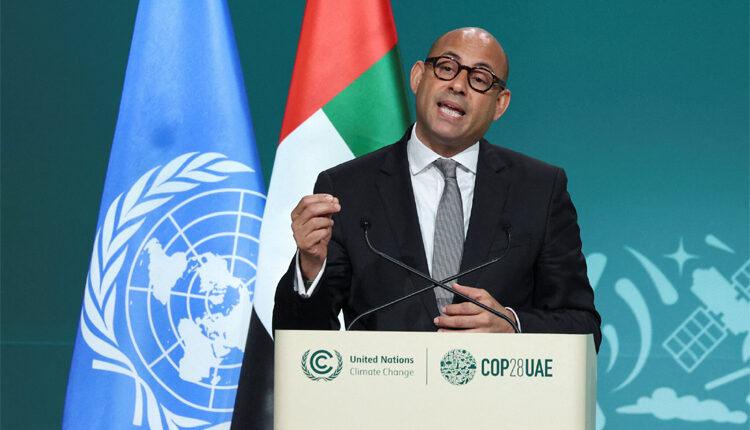UN climate chief steps up pressure on countries ahead of COP29 summit in Baku
The UN’s climate chief has urged countries to intensify action to close the financing gap to tackle global warming at this year’s COP29 summit in Baku, where the hosts of the annual talks are under growing scrutiny.
Many western countries and global interest groups have privately questioned what progress can be achieved by the second petrostate in a row to host the world’s most important discussions to address climate change, after the COP28 conference in the United Arab Emirates. The next summit will also take place in the aftermath of the US presidential election, starting just six days later.
Instead, some have already turned their attention to Brazil as the host of COP30 in 2025, when countries are due to present updated climate targets.
But in a speech at the ADA University in Baku on Friday, Simon Stiell, the UN’s top climate official, hit back against that stance, arguing that COP29 in November should be a “crucial enabling” summit.
He said COP29 must take concrete action on climate finance or else the global agreements reached at COP28 in Dubai in December, which included transiting away from fossil fuels by 2050 and tripling renewable energy capacity by 2030, will “quickly fizzle away into more empty promises”.
“Finance is the make-or-break factor in the world’s climate fight,” he said, adding that at least $2.4tn a year would be needed for developing countries, excluding China.
While COP29 must agree a collective goal for climate finance, Stiell urged countries to go further to find “innovative sources” of financing — bywords for new taxes and levies as well as working with multilateral development banks and the private sector to overhaul the global financial system.
Discussions had taken place between the UN Framework Convention on Climate Change and Baku on the need to prioritise finance at this year’s event, according to people familiar with the early talks.
Baku was only chosen as the host of COP29 in December after geopolitical tensions threatened to derail an agreement on the location following blocking action by Russia against European countries opposed to its war on Ukraine.
The appointment of yet another country that relies heavily on fossil fuels as the host for the climate talks has come in for heavy criticism, with activists also scrutinising the countries’ human rights record.
It is not among the world’s top 20 producers but Azerbaijan’s oil and gas sector makes up about 90 per cent of its export revenues and finances about 60 per cent of the government budget, according to the International Energy Agency.
While many countries have pledged to achieve net zero emissions by the middle of the century, Azerbaijan is aiming to reduce its greenhouse gas emissions by just 40 per cent by 2050 compared with 1990 levels.
In his speech in Baku, Stiell laid out a path for the world to reach net zero emissions and thereby limit global temperature rises by 2050, saying the next two years would be crucial.
Global greenhouse gas emissions have continued to rise, when they need to be cut by almost half by 2030 to limit the rise in temperatures to no more than 1.5C from pre-industrial levels.
“It will take an Olympian effort over the next two years to put us on track to where we need to be in 2030 and 2050,” he said.
Stiell called on countries to submit ambitious so-called nationally defined contributions, or climate action plans, in 2025, saying these needed to outline how every sector of the economy would shift in line with goals.
Identifying G20 members led by the US, China, Russia, Brazil, India, UK, EU and Saudi Arabia, which collectively account for 80 per cent of the world’s emissions, Stiell said they would need to “seriously re-engineer” their climate targets to meet global goals. But it would also provide “among the greatest commercial opportunities of our age”.
There was “no time for victory laps” after COP28, he warned, nor “hiding behind loopholes”. Critics have argued that the COP28 agreement included a “litany of loopholes”, including references to “transitional fuels” and carbon capture and storage.
Last month Saudi Arabia’s energy minister Abdulaziz bin Salman said the agreement to transition away from fossil fuels was just one of several choices on an “à la carte menu”.
Earlier this week, Nigar Arpadarai, a female MP, was named the COP29 high-level champion by Azerbaijan. Her appointment came after wide condemnation of President Ilham Aliyev’s failure to appoint women to the initial COP29 28-member organising committee, a move he has since backtracked on.


Comments are closed.